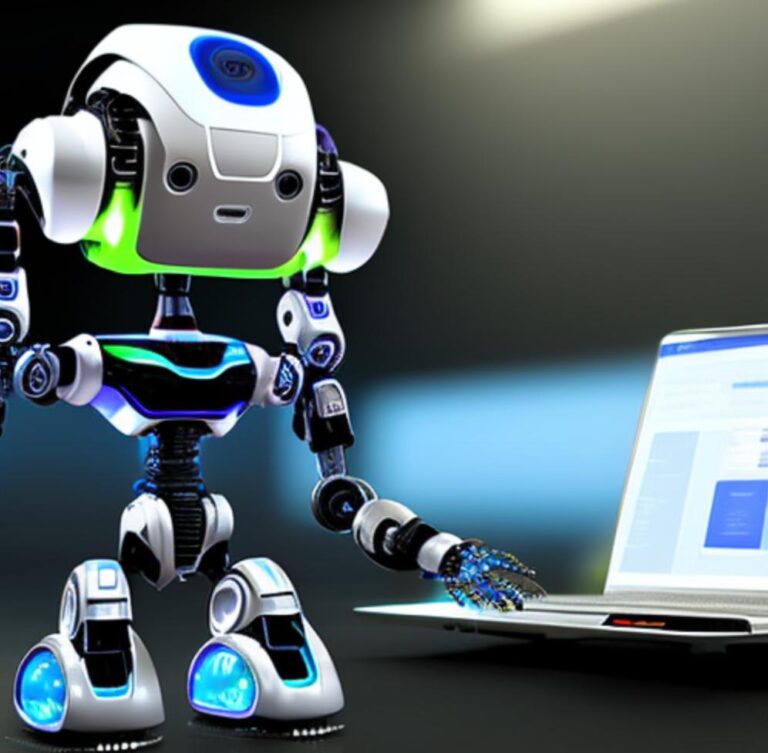The Rise of AI in Cybersecurity
With the continuous advancements in technology, the use of artificial intelligence (AI) has become increasingly prevalent in various industries. One area where AI is making a significant impact is in cybersecurity. As the world becomes more digitally connected, the number of cyber threats also increases, and AI is becoming an essential tool in the fight against these threats. In this article, we will explore the role of AI in the future of the cybersecurity workforce and its potential impact on the industry.
What is AI?
AI refers to the simulation of human intelligence in machines that are programmed to think and act like humans. It includes various techniques such as machine learning, natural language processing, and computer vision, among others. AI-powered systems can analyze data, identify patterns, and make decisions without human intervention, making them valuable tools in cybersecurity.
The Growing Need for AI in Cybersecurity
The rise of technology has made businesses and individuals more vulnerable to cyber attacks. The number of cyber attacks has been steadily increasing, and traditional cybersecurity methods are no longer sufficient in dealing with the complex threats that exist today. AI offers a unique solution to this problem by providing advanced threat detection, protection, and response capabilities.
Enhanced Threat Detection and Prevention
One area where AI has made a significant impact in cybersecurity is in threat detection and prevention. Traditional security systems rely on pre-defined rules and patterns to identify and block threats. However, AI-powered systems can continuously learn, adapt, and evolve based on data analysis, making them more effective in detecting and preventing cyber attacks. AI can also detect malicious activity in real-time, allowing for faster threat response and mitigation.
Streamlined Security Operations
AI can also streamline security operations by automating repetitive tasks and reducing the workload of cybersecurity professionals. Routine tasks such as patch management, malware detection, and system updates can be handled by AI-powered systems, allowing security teams to focus on more critical tasks. This can help improve efficiency and reduce human error, which is often a significant factor in successful cyber attacks.
Proactive Threat Hunting
In addition to threat detection, AI can also be used for proactive threat hunting. This involves continuously monitoring systems for suspicious behavior and potential vulnerabilities. AI-powered systems can analyze vast amounts of data and identify anomalous patterns that may indicate a cyber attack or breach. This allows cybersecurity teams to take proactive measures to prevent attacks before they occur.
AI and Human Collaboration
Contrary to popular belief, AI is not here to replace human cybersecurity professionals. Instead, it can work in collaboration with them to enhance the overall security strategy. AI can handle the mundane and time-consuming tasks, allowing human professionals to focus on more critical tasks, such as building and implementing cybersecurity strategies and policies.
Challenges and Limitations of AI in Cybersecurity
While AI has many benefits in cybersecurity, there are also challenges and limitations that need to be considered. One of the main concerns is the potential for AI systems to be tricked or manipulated by cybercriminals. These systems rely on data, and if the data is corrupted or manipulated, it can lead to false positives or false negatives, compromising the overall security.
LSI keywords: tricked, manipulated, data corruption, false positives, false negatives, transparency, algorithms, ethical concerns
The Need for a Skilled Cybersecurity Workforce
While AI can help enhance cybersecurity efforts, it is not a replacement for a skilled cybersecurity workforce. As the use of AI in cybersecurity becomes more prevalent, there will be a growing need for professionals who can develop, manage, and maintain these systems. Cybersecurity professionals will also need to have a deep understanding of AI and its capabilities to effectively utilize it in their work.
In Conclusion
The future of the cybersecurity workforce will undoubtedly involve a significant role for AI. With its ability to enhance threat detection and prevention, streamline security operations, and promote proactive threat hunting, AI is revolutionizing the cybersecurity industry. However, it is essential to address the challenges and limitations that come with this technology and ensure that it works in collaboration with skilled cybersecurity professionals to protect individuals and businesses from cyber threats.

